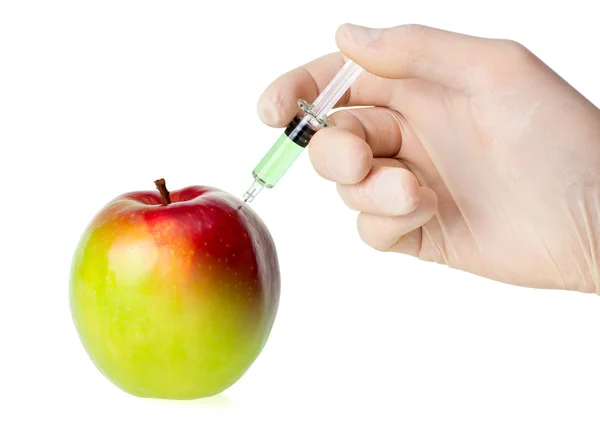Are GMOs produce food bad for your health? Or is this fear unfounded?
Genetically modified organisms, or GMOs, have sparked heated debates, particularly in the realm of food, agriculture, and health. While they have found success in fields like medicine, such as GM insulin, GMOs remain divisive. However, it’s worth noting that humans have been genetically modifying plants and animals for eons.
In this blog post, we’ll delve into the world of GMOs, discussing the benefits, risks, and potential impact they can have on our food and planet.
Selective Breeding vs Genetic Engineering
Both Selective breeding and genetic engineering are about promoting superior traits in reproduction or organisms.
Selective breeding, also known as artificial selection, involves choosing and mating individuals with desirable traits such as yields to promote those traits in offspring. This process relies on natural genetic variations and takes generations to achieve the desired outcome. It’s a less precise method, as it involves the mating of whole organisms rather than manipulating their DNA directly. Selective breeding has been used for centuries to develop breeds of domesticated animals and crop varieties with specific characteristics.
Related: What You Need to Know About GMO Food
Genetic engineering (GE), on the other hand, allows for precise manipulation of an organism’s DNA to introduce or modify specific traits. It involves the insertion, deletion, or alteration of genes to achieve desired outcomes, often in a single generation. This level of precision enables the creation of genetically modified organisms (GMOs) with traits that might be difficult or impossible to achieve through traditional selective breeding. GMOs have been developed for various purposes, such as improving crop resistance to pests or enhancing nutritional content.
Benefits of GMOs

GMOs offer several benefits that contribute to sustainable agriculture.
A perfect example is Hawaii’s papaya industry. It was on the brink of collapse due to the ringspot virus. However, scientists introduced a genetically modified papaya that was resistant to the virus, effectively saving the industry and preserving jobs.
Other Benefits of GMOs include;
Increased food supply
Genetically modified organisms (GMOs) have the potential to produce higher crop yields, which is crucial for feeding the world’s growing population. By introducing genes that enhance traits like resistance to pests or improved growth, GMOs can help ensure a more abundant and stable food supply.
Cheaper Food Prices
GMOs can lead to a reduction in the cost of food production. For example, crops engineered to resist pests may require fewer chemical pesticides, and those designed for improved yields can lower the expenses associated with farming. This cost reduction can ultimately make food cheaper for consumers.
Reduce Food Wastage
GMOs can produce crops with extended shelf lives.
which helps reduce food waste. By enhancing the natural resistance of crops to spoilage factors, such as molds and pathogens, genetically modified foods stay fresher for longer periods, minimizing the amount of food that goes to waste.
Improved nutritional value
Genetically modified crops can be engineered to have improved nutritional content.
This is especially important in addressing malnutrition, as GMOs can be designed to contain higher levels of essential nutrients, such as vitamins and minerals, in staple crops, providing a potential solution to nutrient deficiencies in vulnerable populations.
Sustainability
GMOs can produce crops that are resistant to diseases and droughts, reducing the need for chemical pesticides and excessive water usage in agriculture. This can have significant environmental and economic benefits, promoting more sustainable and resource-efficient farming practices.
Enhanced Food flavor
While it is not the primary focus of GMOs, some genetically modified crops can be designed to have enhanced flavor profiles. This can make them more appealing to consumers and encourage healthier eating habits, as more flavorful food is often more enjoyable and satisfying.
Medicinal foods
GMOs can be used to produce crops that serve as platforms for creating vaccines and other medicinal products. For example, certain plants can be genetically modified to produce proteins or antigens used in vaccine production, offering a potentially more cost-effective and scalable method for producing vaccines and medicines.
Improved Human Health
Genetically modified crops can reduce the need for chemical pesticides. By incorporating genes that confer resistance to pests, GMOs can help lower the environmental impact of farming, protecting non-target species and reducing chemical residues in food products. This benefits both the environment and human health.
Potential Health Risks of GMOs
While GMOs have numerous benefits, it’s crucial to acknowledge potential risks. One such risk stems from the increased use of herbicides, particularly glyphosate, due to the prevalence of herbicide-resistant GMO crops. Over 90% of cash crops in the US are herbicide-resistant. Although glyphosate is deemed less harmful than other herbicides, the extensive use of any herbicide raises environmental and health concerns.
Antibiotic resistance
One of the potential risks associated with GMOs is the development of antibiotic resistance in disease-causing bacteria. This could result in a significant increase in the spread of antibiotic-resistant diseases, making it more difficult to treat bacterial infections with existing antibiotics.
It is essential to carefully monitor and regulate the use of antibiotic resistance markers in GMOs to mitigate this risk.
Allergenicity
Genetic engineering has the potential to transfer allergenic proteins from one food source to another.
It can pose a health risk to individuals with known food allergies. For instance, when a gene from a Brazil nut was engineered into soybeans, it caused serious allergic reactions in people allergic to nuts. This highlights the importance of thorough allergen testing and labeling of genetically modified foods to protect consumers with allergies.
Unknown long-term effects
There is limited research and knowledge on GMOs.
GMOs are relatively new in the world of agriculture and food production. As a result, there is limited knowledge about their long-term effects on human health and the environment soil health, insect populations, and non-target species. This uncertainty can lead to concerns and skepticism among the public.
Continued research and monitoring are necessary to better understand the potential long-term consequences of GMO consumption and cultivation.
Toxicity
Can Eating GMOs cause Cancer?
Some studies have suggested that genetically modified foods may have toxic effects, such as hepatic (liver), pancreatic, renal (kidney), or reproductive effects. These findings raise concerns about the safety of GMOs, with some people alleging this may cause cancer. However, according to many studies, eating GMO plants is no more risky than non-GMO plants
Long-term research is needed to comprehensively evaluate the potential health impacts of consuming genetically modified products.
Environmental risks
GMOs can have unintended effects on the environment, including the emergence of superweeds and a loss of biodiversity.
- Superweeds are plants resistant to herbicides, often due to the widespread use of genetically modified crops designed to withstand specific herbicides. This can lead to increased herbicide use and ecological imbalances.
- Biodiversity: The adaptation of genetically modified organisms to specific environmental conditions can have consequences for ecosystems. For example, if GMOs are designed to thrive in particular environments, they may outcompete native or non-GMO species, potentially leading to changes in local biodiversity and ecosystems.
Careful environmental assessments and responsible farming practices are essential to mitigate these risks and maintain a healthy ecosystem
Potential Ethical & Legal Risks of GMOs
GMOs have brought about significant advancements in agriculture and food production, but they also raise various concerns that extend beyond their safety for human consumption. These concerns encompass environmental, ethical, legal, and social aspects, highlighting the complex and multifaceted nature of the GMO debate.
Labeling and Transparency
Many individuals advocate for clear and transparent labeling of GMO products, allowing consumers to make informed choices about the food they purchase. Labeling initiatives have been proposed and implemented in various regions to provide consumers with the information they need to decide whether they want to consume genetically modified foods.
Cross-Contamination
Cross-contamination is a concern when GMO crops are grown near non-GMO or organic fields. The pollen from GMO plants can drift or be carried by insects to neighboring fields, potentially contaminating non-GMO or organic crops. This risk has led to challenges for organic farmers and increased the need for strict buffer zones to minimize unintended cross-contamination.
Intellectual Property and Farmer
use of patented GMO technologies can lead to legal disputes and concerns about the rights of farmers. Some argue that patent protections on genetically modified seeds can limit farmers’ ability to save and replant seeds from their own crops and reduce crop diversity. These issues have sparked debates about the balance between intellectual property rights and the rights of farmers to save and exchange seeds.
Ethical Considerations
Is GE playing god? and will this not have adverse effects on nature?
GMOs raise ethical questions about the potential commodification of life, particularly when it comes to genetic engineering in agriculture. Some critics argue that tampering with the genetic makeup of plants and organisms may raise ethical concerns related to biodiversity, naturalness, and unintended consequences.
Consumer Choice and Market Access
The introduction of GMOs can impact the choices available to consumers and access to non-GMO or organic options. Concerns exist that widespread adoption of GMO crops could lead to a reduction in non-GMO varieties and organic agriculture, limiting choices for consumers who prefer such options.
The Verdict
While GMOs show tremendous potential, they are not a magical solution to all our agricultural and environmental challenges. We must embrace a holistic approach that combines various strategies, including finding more effective methods like GMOs, intensifying farming practices instead of expanding agricultural land, and exploring sustainable alternatives. It is only through a comprehensive and responsible approach that we can harness the power of GMOs to create a more sustainable and resilient food system.



